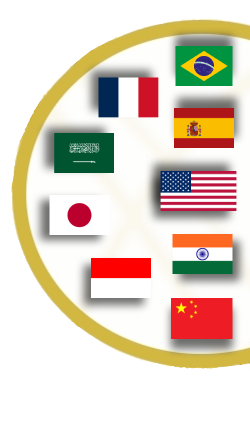Objectivism and MBTI: Which Personality Types Embody Ayn Rand’s Philosophy?
Objectivism — the philosophy of reason, independence, and objective reality — is not neutral toward psychological types. Some MBTI types naturally align with its principles. Others resist them. This page explores the affinities between MBTI typology and Objectivism, anchored by Ayn Rand herself.
♟️
The MBTI Type Most Compatible with
Objectivism:
INTJ
The Mastermind
Rational, independent, and future-oriented, the INTJ is the MBTI type most naturally compatible with Objectivism. They are known for their ability to structure thinking, pursue long-term goals without yielding to social pressure, and prioritize logic over emotion.
They reject moral compromise and act from a clear vision of what is right and effective. This is the type of Ayn Rand herself — and of John Galt: self-mastered minds, builders of rational ideas and empires.
♟️
Ayn Rand Herself: INTJ
Biographers and analysts agree: Ayn Rand was an INTJ. She combined systematic vision, intellectual intransigence, extreme independence, and a focus on rationally building a moral world. The INTJ type most closely reflects the internal coherence of her philosophy.
🧠
Other Types Compatible with Objectivism
⚡ENTP – The Visionary
Creative, provocative, bold, and highly cerebral. Loves to explore ideas, challenge beliefs, and disrupt the status quo. Can align with Objectivism if accepting a rational moral framework.
Example:
Francisco d’Anconia (playful, brilliant, provocative — yet loyal to his deepest values)
🔍INTP – The Analyst
An abstract thinker, lover of coherent systems, who seeks truth through pure reason. More emotionally detached than INTJ, often withdrawn but intellectually formidable.
Example:
Hugh Akston (a professor withdrawn from the world, yet a pillar of Objectivist thought)
💡INFJ – The Structured Idealist
Driven by a moral vision, introverted yet intense, the INFJ can find in Objectivism a powerful compass — if they reject sacrificial altruism. This is the most “emotionally sensitive” of the compatible types.
Example:
Dominique Francon (extreme, lucid, but seeking a world worthy of her ideals)
💎
MBTI Types of Objectivist Heroes
♟️
John Galt – INTJ
Systemic genius, planner of an ethical revolution.
♟️
Howard Roark – INTJ
Rational creator, strategic vision, relentless execution.
Absolute refusal to compromise, total autonomy.
Guided by inner ideals, indifferent to social approval.
🚂
Dagny Taggart – ENTJ
Efficient leader, determined, focused on reality and action.
⚡
Francisco d’Anconia – ENTP
Brilliant provocateur, charismatic, strategic player.
Master of ideas, language, and symbolism to subvert the system.
Bold, ironic, humorous — his philosophical weapons.
Explorer of ideas, ever in motion, eluding rigid minds.
Dynamic, adaptable, unsettling to the conformists.
🏗️
Hank Rearden – ISTJ
Hardworking, grounded, pragmatic.
Strong sense of duty toward work and productive values.
Loyal to reality, effort, and personal responsibility.
Stoic resistance to corruption and injustice.
Moral strength built on discipline and integrity.
🎯
Kira Argounova – INTJ
Clear vision of a free life despite oppression.
Unshakable will, independent and determined.
Instinctive rejection of collectivism and submission.
Strategic, lucid mind ready to sacrifice everything for ideals.
Silent heroism rooted in thought and freedom.
⚖️
Types Least Compatible with Objectivism
Some types lean toward sacrifice, group submission, or subjective emotion:
❌ ISFJ / ESFJ: focused on social expectations, duty, traditional altruism.
❌ INFP: guided by subjective values, often incompatible with Objectivist reason.
⚠️ ENFP / ENFJ: open and energetic, but prone to emotional or collectivist ideals.
⚠️ ESFP / ISFP: sensitive, present-focused, often reactive rather than rational.
📌
How to Use This Typology
Objectivism does not ignore psychology. But it asserts that every human can cultivate reason, autonomy, and integrity — regardless of type.
This classification is not destiny, but a tool for introspection: where am I starting from — and what can I build in myself to live like a Randian hero?
“Man is an end in himself. He does not exist for others.” — Ayn Rand
HOME